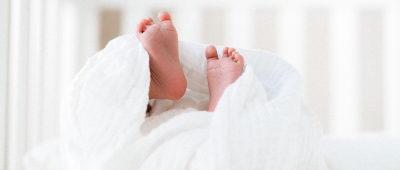Fertility struggles impact many people across the UK. Yet, fertility experts can use fertility treatments to support you on your journey and provide you with the medical care you need to conceive.
Intrauterine insemination (IUI) is one fertility treatment method specialists can use to aid different fertility problems. However, you might be wondering how successful the procedure is and how soon after IUI can implantation can occur?
If so, keep reading to learn everything you need to know about IUI and implantation.
How does IUI work?
IUI is a type of fertility treatment that involves placing concentrated sperm (which can come from a partner or donor) directly into the uterus to meet an egg to help increase the chances of fertilisation. Fertility experts often recommend this procedure for couples struggling with certain types of fertility problems, such as low sperm count, poor motility, unexplained infertility, or issues with cervical mucus.
During the IUI process, laboratory technicians separate the sperm from the seminal fluid to increase the sperm's concentration and quality — enhancing the chances of pregnancy.
Medication, in the form of a hormonal injection, can also be used to stimulate egg production in the ovaries and increase the chances of successful fertilisation during IUI.
Once the sperm sample is ready and you’re ovulating, the IUI procedure can begin. First, the fertility consultant will insert a speculum into the vagina and insert a small catheter into the uterus. The prepared sperm can then be placed into the uterus.
What happens after IUI?
After you’ve had an IUI procedure, you should be able to resume your normal activities. However, fertility specialists often recommend avoiding things like heavy lifting and strenuous exercise.
You must follow any instructions your fertility doctor gives you, as they are designed to help increase your chances of implantation and pregnancy.
Are there any side effects?
While IUI is considered safe, there are some possible side effects to be aware of. For example, some women may experience mild cramping, light bleeding or spotting after the procedure. However, any mild cramping that occurs can be quickly relieved with over-the-counter pain relief, or with the use of a heat pad.
How soon after IUI can implantation occur?
When trying to conceive naturally, sperm must move up through the cervix and into the uterus to fertilise an egg. However, with IUI, sperm is placed directly into the uterus, so it doesn’t have to travel as far — giving a higher chance of fertilisation.
To ensure the best chances of success, fertility doctors can time IUI to coincide with ovulation, when an egg is released. Ovulation timing can vary, but tracking methods, such as ultrasound monitoring, can help determine the best time for an IUI procedure.
During IUI, sperm can survive in the reproductive tract for up to three days, meaning IUI can be time before ovulation. The timing allows the sperm to be present in the reproductive tract when the egg is released.
Once fertilisation occurs, it can take from five to six days for the fertilised egg to implant in the uterus. At that point, the woman's body begins producing the hormone human chorionic gonadotropin (hCG), which a pregnancy test can detect.
It’s important to note that not all fertilised eggs will successfully implant in the uterus, and even a successfully implanted embryo can result in a miscarriage. Therefore, working with a fertility specialist to determine the best timing for IUI and monitor for any signs of pregnancy or complications is essential.
Early pregnancy symptoms after IUI
After an IUI procedure, it’s natural to wonder about early pregnancy symptoms. However, it’s vital to remember that not all women will experience these symptoms and symptoms alone are not a reliable way to confirm pregnancy.
Early pregnancy symptoms you may experience after IUI procedure can include:
- Implantation bleeding – some women experience light spotting or bleeding about a week after conception when the fertilised egg implants in the uterus
- Breast changes – as hormone levels change, some women experience breast tenderness or swelling
- Fatigue – many women experience exhaustion during the early weeks of pregnancy, as their body works to support the developing embryo
- Nausea and vomiting – Commonly known as ‘morning sickness’, some women may experience nausea or vomiting, usually around week six of pregnancy
- Food aversions or cravings – Hormonal changes can cause women to experience food aversions or cravings that they didn’t have before
Importantly, some symptoms, such as breast tenderness and fatigue, can also be experienced during a typical menstrual cycle. However, implantation bleeding, nausea, vomiting and food aversions or cravings are less common with menstrual cycles.
It’s also worth noting that early pregnancy symptoms may not begin right after an IUI procedure, because it can take several days for fertilisation to occur and the fertilised egg to implant in the uterus. Therefore, some women may begin experiencing symptoms as early as a week after conception, while others may not notice anything until several weeks into pregnancy.
How to help implantation after IUI
Making specific lifestyle changes can improve the chances of successful implantation after an IUI procedure. Here are some lifestyle tips to consider:
- Eat a healthy diet including fruits, vegetables and lean proteins to ensure you get the right vitamins and minerals for your reproductive health
- Reduce your caffeine and alcohol intake, as they can adversely affect fertility
- Stay hydrated by drinking lots of water to help your overall health and improve your cervical mucus quality
- Exercise regularly to boost your circulation and enhance your fertility. Don’t overdo it with intense workouts, though, as this can stress the body
- Reduce stress by practising meditation or gentle activities like reading to help keep you calm during the two-week waiting period after IUI
- Avoid smoking and drugs, as these significantly reduce fertility and increase the risk of pregnancy complications
How soon after a failed IUI can you try again?
If a first IUI cycle is unsuccessful, trying another cycle in your next menstruation is usually safe. However, after several unsuccessful cycles, it may be time to consider alternative options, such as in vitro fertilisation (IVF).
There are several reasons why an IUI cycle may fail, such as poor sperm quality, problems with ovulation, tubal blockages, or underlying medical conditions.
Coping with the emotional toll of a failed IUI cycle can be challenging. However, it’s important to remember that infertility is a medical condition, not a personal failure. Talking to a counsellor or confiding in a friend or family member can help alleviate some emotional stress.
IUI has helped many people struggling with fertility become parents, but it might not always happen immediately. Sometimes, multiple cycles are needed before implantation occurs, leading to a healthy and successful pregnancy.
If you want to start or expand your family but need extra support, reach out to us at IVF Matters. Our expert fertility specialists can advise you on your next steps and create a personalised treatment plan.
Book a FREE Advisory Call today.
Schedule a Fertility Consultation with Dr Irfana Koita
Related Articles:
How is IUI different from IVF Treatment?
What to Expect After an IUI Procedure
Is IUI good for Low Sperm Motility?







